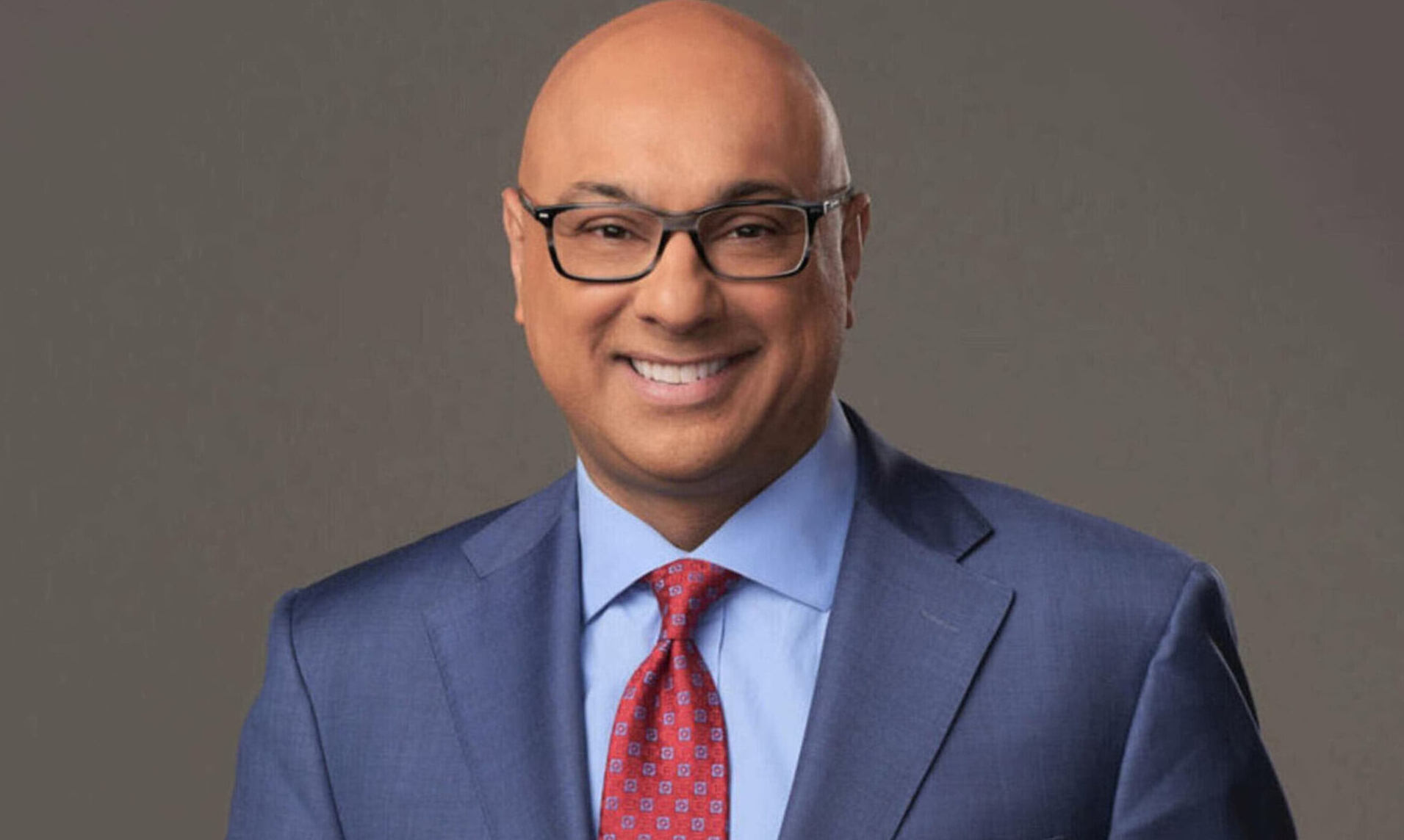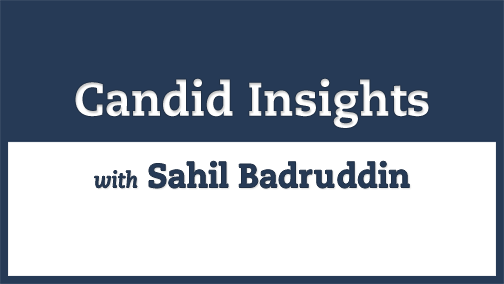Ali Velshi on Media Bubbles and Minority Communities
EDITORS’ NOTE: Ali Velshi — television journalist at MSNBC and a senior economic and business correspondent for NBC News — discusses his insights on Media Bubbles and Echo-Chamber, minority voices in the media, critical thinking, Muslim perception, leadership, Journalism, Civic Engagement, and vision for the future.
Video Interview
Audio Interview
Interview Questions
Media Bubbles — Time Index: 1:19 (Based on the Audio)
1. I want to start by talking about media bubbles. You might have heard of this term post-fact society, that we, kind of, live in a world where individuals feel entitled not only to their own opinions but to their own facts. I think this kind of leads to a series of knowledge bubbles, perhaps where we limit and self select whether you know, out of fear, ideology, worldview, or other motivators, what knowledge we expose ourselves to.
How do you think we can first actually recognize we’ve wrapped ourself in a bubble and then break free from them?
Minority Voices in the Media — Time Index: 4:48
2. I think one of the biggest struggles we have as a society is trying to expose minority views and people who kind of don’t have their voices heard as actively. And I think when we have echo chambers, when we have media bubbles, when we have this self-selection, we are not looking at these views. Have you found any measures or best practices, perhaps to kind of actively share those voices?
Critical Thinking — Time Index: 7:26
3. If I talk about critical thinking, and perhaps the courage to be true to ourselves in our commitment to finding the truth, do you think that’s helped in kind of breaking bubbles and encouraging people to have a commitment to truth? Or you’re still seeing the same things for the past few years?
Muslim Perception in the Media — Time Index: 9:54
4. If I shift our conversation towards Muslim perception you’ve often criticized that the media focuses on sensational, violent, and negative stories of which the Muslim world has managed to offer over the past few decades. This obviously dominates the news cycle, to the exclusion, perhaps of positive stories, which are not, as often reported, which leads to a skewed perception of the Muslim world. What have you found to be effective to address this?
Leaders and Echo Chambers — Time Index: 13:18
5. If I talk about social media now, I think social media plays a large role in the spread of knowledge today. In 2016, a Pew Research study cited in the Guardian reported that six out of 10 millennials get their political views on Facebook. Now I’m sure it’s shifted to perhaps you know, other platforms, but making the 1.7 billion users social behemoth, the largest millennial marketplace, marketplace for news and ideas in the world. But within Facebook’s echo system exists a warren of intellectual biomes created by users whose interest in interacting with opposing political views is nearly non-existent.
And we kind of talked about this earlier about how people are being fed news they want to hear rather than, you know, something that challenges them. But what I want to get here at is leaders.
So speaking broadly, the leaders in organizations and institutions will also probably adopt echo chambers, perhaps without even realizing it. And I think that when leadership is exposed to views, and echo chambers then it’s not a healthy leadership at this point, clearly. So how do you think we can help leaders recognize that they’re stuck in these echo chambers and media bubbles, etc?
Marginalized Groups and Media Organizations — Time Index: 18:30
6. You know, I think there are sometimes news outlets for sale. For example, I think the Times of London was on sale at one time. And also the Atlantic, if I remember correctly, was also at sale. Have you seen wealthy people of marginalized groups or marginalized organizations take a larger interest in media? And perhaps, you know, buying news outlets or taking an active stance in news outlets in general?
Advice on Journalism — Time Index: 20:49
7. What would you do to perhaps encourage people who want to pursue journalism, but are a minority in the context of journalism? What would you say to them?
Civic Engagement and Minority Communities — Time Index: 23:31
8. Now, what advice would you give to minority communities, which again, have trouble getting out of their silos to get more civically engaged?
Muslim Identity — Time Index: 26:54
9. By religious cultural identity, you’re a Shia Muslim. How does that part of your identity impact you today?
Time Index: 28:23
10. The reason why I ask is because there are people in the Muslim community who look up to you, whether in journalism or other things as perhaps a role model. Do you feel that you have more of a responsibility now of identifying to an identity? And do you think there are lessons perhaps you want to kind of share with those individuals?
Vision for the Future — Time Index: 32:05
11. The last thing I want to talk about is the future and specifically your vision for the future. This is a little deep, but what would be a vision that you have that the world can achieve perhaps in 25 years? And any insights or suggestions you would give to help achieve this vision?
About Ali Velshi
Ali Velshi brings his sharp analysis and point-of-view to the new weekend morning show, “Velshi,” airing from 8 a.m. to 10 a.m. ET on Saturdays and Sundays on MSNBC. Previously, Velshi anchored “MSNBC Live” and “Velshi & Ruhle.” The MSNBC host will continue to serve as a fill-in prime anchor and cover breaking news for the cable network.
Velshi has covered a wide range of domestic, global and economic issues throughout his career, including climate change, the spread and defeat of ISIS, the refugee crisis, the Iran nuclear deal, tensions between Russia and the west, the Greek debt crisis and the global financial crisis.
Before joining NBC News and MSNBC in 2016, Velshi hosted “Ali Velshi On Target,” a nightly primetime show on Al Jazeera America. Before that, he served as CNN’s Chief Business Correspondent, anchor of CNN International’s “World Business Today” and host of CNN’s weekly business roundtable “Your Money.” Velshi also co-hosted CNN’s morning show, “American Morning.”
An award-winning journalist, Velshi was honored with a National Headliner Award for Business & Consumer Reporting for “How the Wheels Came Off,” a special on the near collapse of the American auto industry. His work on disabled workers and Chicago’s red-light camera scandal in 2016 earned him two News and Documentary Emmy Award nominations, adding to a nomination in 2010 for his terrorism coverage. Additionally, Velshi has taken his economic analysis to “Oprah,” “The View,” and “The Daily Show with Jon Stewart.”
Velshi is the author of “Gimme My Money Back” (Sterling and Ross, 2008) and co-author with CNN’s Christine Romans of “How to Speak Money” (Wiley, 2010).
Born in Kenya and raised in Canada, Velshi graduated from Queen’s University in Canada, which bestowed an honorary Doctorate of Laws upon him in 2016. Velshi splits his time between New York City and Philadelphia, where he teaches a course at the Wharton School of the University of Pennsylvania. Active in the community, Velshi serves on the Boards of Trustees of the Chicago History Museum, Seeds of Peace, the XPrize Foundation, The National Constitution Center, and the Philadelphia Citizen, and is a member of the Council on Foreign Relations. As of September of 2019, he is an instructor in “Business Communications for Impact” at the Wharton School of the University of Pennsylvania.


